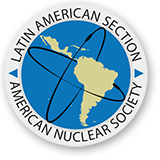International Nuclear Energy Academy (INEA)
About the International Nuclear Energy Academy (INEA)
The International Nuclear Energy Academy (INEA) is a distinguished global institution composed of leading experts committed to the advancement of nuclear energy for peaceful purposes.
Founded to recognize and harness the expertise of accomplished professionals in the nuclear field, INEA provides a platform for independent thought, strategic insight, and the exchange of high-level knowledge across international borders.
By promoting academic excellence, innovation, and informed policy dialogue, INEA contributes to the responsible development of nuclear energy in support of global sustainability, safety, and technological progress.

Charter
(As amended at the General Membership Meeting at Albuquerque, U.S., on 16 November – 1997)
The duties of the Executive Committee members shall be as follows:
- The Chairman shall preside over meetings of the INEA and Executive Committee, shall represent the INEA as required and shall generally oversee the management and operation of the INEA.
- The Vice-Chairman shall have and exercise all powers, authority and duties of the Chairman in his absence or inability to serve.
- The Secretary shall record and maintain minutes of all meetings of the INEA and Executive Committee and shall issue such communications as requested by the Chairman, Executive Committee or the INEA.
- The Executive Committee shall act upon behalf of the INEA as directed by the INEA and shall act for the INEA between meetings of the INEA.
By-Laws
(As amended at the General Membership Meeting at Nice, France, on 27 October 1998)
New members will be admitted to the Academy by a majority of the members present and voting at any valid meeting of the INEA or by a majority of the INEA membership voting in a mail ballot.
For this purpose, a meeting will be valid only is there is a quorum; that is, if the numbers of present members plus those voting by proxi and/or by mail is equal or larger than half the total membership. The proxis could only be given to another INEA's member.
When a full member did not participate in two consecutive regular meetings, not giving notice in advance, he will be transferred to the category of Non-voting Member with voice but no vote. He will be back to the category of full member if he requests so to the Executive Committee.
Any member wishing to become Non-voting Member, for whatever reason, could request so by mail or at a regular meeting.
The number of full members will be limited to one hundred.
The number of members of any country, though to some extent flexible, will depend on the amount of the county's radioactive and nuclear activities.
A classification, although indicative, is the following:
- Group A (up to 8 members): Canada, France, Germany, Japan, Russia, U.K., U.S.
- Group B (up to 6 members): Argentina, Belgium, Brazil, Bulgaria, China, Cuba, Czech Republic, Finland, Hungary, India, Italy, Kazakhstan, Korea, Lithuania, Mexico, Netherlands, Philippines, Romania, Slovaquia, Slovenia, South Africa, Spain, Sweden, Switzerland, Taiwan and Ukraine.
- Group C: All other countries interested in participating in INEA would be represented by one member.
Candidates for admission will have to be presented by a member of the INEA and a Vice-Chairman, and will have to be accepted by simple majority of the members in compliance with Article 1 of the Charter.
Membership may be terminated by cancellation, on the recommendation of the Executive Committee and with the approval by simple majority of the General Assembly, at the request of the own member, in the event of the member's death.
INEA Member's Change of Address
Please, introduce here any change of your address:
The term of office of the Executive Committee is two years, equal to the term of office of the Chairman. Reelection of this Committee is possible for a maximum of three consecutive terms, except for the Chairman.
The Vice-Chairman will be selected trying to fulfill a criteria of geographical balance.
Apart from the regular meetings, held at the time of major International Conferences, special meetings may be held at any other occasion upon the call of the Chairman, any Vice-Chairman or a majority of the membership of the INEA.
These special meetings will fulfill the following conditions:
- They will have an advisory nature.
- The Executive Committee and the membership will be informed in advance of its agenda.
- Their conclusions will be reported to the Executive Committee in a regular meeting.
- At least one Vice-Chairman will participate in them.
The Executive Committee could decide the making of a study or Position Paper on an issue of current interest. With that purpose an ad hoc committee will be appointed by the Executive Committee. The purpose and target group of that study will be clearly stated by the ad hoc committee. The purpose of that study will be clearly defined at a foreword of the Position Paper. This study could be sent for publication to different magazines of the media, both technical and non technical. It will be the responsibility of the members of INEA, if they wish so, the publication of such studies in their area of influence.
Approval of subject, title and rapporteurs for any new study or Position Paper shall be by the Executive Committee with qualified majority (3/4 of voting members). Part of this decision may be delegated to some specific members of the Executive Committee. When the Executive Committee had approved a new subject for a Position Paper, the information should be circulated to all INEA members. The draft Position Paper, prepared by the rapporteurs, shall be circulated for comments to all members of the INEA, with no more than two months for comments. The rapporteurs shall produce, within two months, a second draft incorporating, so far as possible, all comments received from INEA members.
This second draft shall be approved, with minor modifications if necessary, by the Executive Committee as follows. Position Papers shall require unanimous approval from all members of the Executive Committee. If approval is obtained by a qualified majority of two-thirds vote of those present at the Executive Committee, the paper will become a Report to the INEA. If no qualified majority favours the approval, the subject will be cancelled although the Chairman will retain the right to refer the paper back to the rapporteurs for a further draft.
Executive Committee
Chairmain
Dr. Daniel A. Meneley
Vice-Chairman
Mr. L. Neville Chamberlain
Dr.Shunsuke Kondo
Mr. Nicolay N. Ponomarev-Stepnoi
Mr. Jorge Spitalnik
Ex-Chairman
Dr. Rafael Caro
Dr. Kun Mo Chung
Dr. Walter Kato
Mr.L.Manning Muntzing
Dr. C. Pierre Zaleski
Secretary
Dr. E. Gail de Planque
Committee Chairs
Policy Study
Dr. C. Pierre Zaleski
Mr. L. Neville Chamberlain
Membership
Dr. Shunsuke Kondo
Financing
Mr. L. Manning Muntzing
Public Relations
Mr. Jorge Spitalnik
Institutional Development
Dr. Rafael Caro

